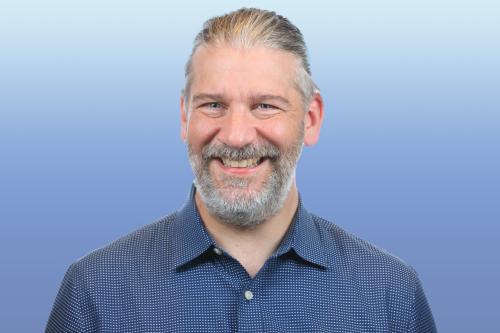Let’s Talk About AI …
Letter from the Executive Director, September 2023
When we launched the first NISO Plus Forum last year, we had high hopes for how it would work and how people would react. The first Forum was focused on metadata, a not-insignificant challenge in our community that’s both expansive and complex. We trusted that, even outside a traditional speaker/discussion format, participants would warm to the open-ended discussion style that we planned. When starting the meeting, we each put down a note of what we hoped the day would bring. My hope was “that the participants were engaged and that they developed some great ideas.” In the end, that was exactly what happened. Several of the ideas became more fleshed-out sessions at NISO Plus. While we’re still settling on what to move forward with, at least one metadata project idea is near the top of the list. Another idea flourished into an educational musical about metadata at the SSP Conference in June. Still another idea is being formulated into a book, and yet another is being planned to support Indigenous knowledge in the publication process. Even just following its first iteration, the NISO Plus Forum is contributing meaningfully to the Plus model: Meet, discuss ideas, plan, and then move toward action. Translating ideas into action is our primary goal with NISO Plus, and it certainly has taken hold.
Next month, we will be meeting in Washington again for the second NISO Plus Forum. This year, we’ll turn our attention to artificial intelligence and its impact on our community. Many discussions this summer began with, “What will be the impact of AI on …” These are critical questions, particularly for fields that center around writing and communications. As we grapple with questions like assignment of authorship, copyright ownership, and discerning “real” from “machine-generated” content, there is much that we need to discuss. While NISO isn’t necessarily the place to go into depth about natural-language processing, we certainly are well positioned to convene discussions about the sources and uses of training data, since much of it is in the hands of publishers or library repositories. We are also well placed to foster discussions on the ethical implications of using these data and models, either in the ways that data is ingested and reused or how underrepresented communities are portrayed or exploited in these new systems. Participants in the Forum will also consider how natural language models might be applied in our community as tools that consume the resources that NISO members are either creating, distributing, or curating.
The purpose of the NISO Plus Forum—indeed for all NISO Plus events—is not only to meet and discuss, but to take those ideas and move them into action. Our focus on Services, Data, and Ethics will distinguish the Forum from other events in our community about AI systems. We plan to start with a discussion of the applications and tools in use in our community. Then, we will look at how these models are trained, what data is used, and the ethical implications of the sources. Of course, the purpose of sharing our thoughts and opinions isn’t simply to educate and inform the other participants. Ideally, the results of the conversation will be tangible ideas that we can bring out to the broader community, either at the annual conference, which will be held in person in Baltimore next February, or in other contexts.
There is little doubt that the furor over AI-generated content will continue unabated. Machine-generated content will challenge the fundamentals of our understanding of creation and authorship, of novelty and originality, of reuse and attribution. Each of these concerns will force us to rethink our relationship to content. For example, until recently, we could reasonably assume that content was at least created by a human being, if not by the named author. We didn’t question what it meant to read information and incorporate it into our understanding of the universe. An artist training in a particular style or genre wasn’t considered to be “stealing” a work, so long as it wasn’t an attempt at forgery. Yet, there has now been a flood of complaints and even lawsuits on how large language models are reading and regurgitating content. Others are seeking to define this activity as part of the class of transformative fair use. While large language models can’t be said to be “thinking” in a traditional sense, we need to define what they are doing. Also, we need to be able to consistently identify authors, be they human or machine, and track content’s provenance. Finally, we should consider carefully how this provenance information is communicated throughout the supply chain of information.
There is a great deal to discuss and work through regarding AI in our community. Fortunately, the NISO Plus Forum in October and the full NISO Plus Conference in February will offer opportunities to explore these topics. We will need these spaces to provide clarity about what information standards and best practices should exist. You won’t want to miss being part of determining which ideas get discussed, which ideas get advanced, and what work eventually gets done. We look forward to seeing you in person next month.
Sincerely,
Todd Carpenter
Executive Director
